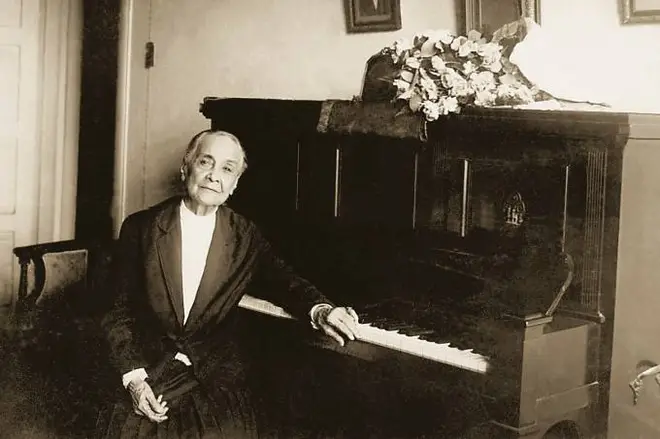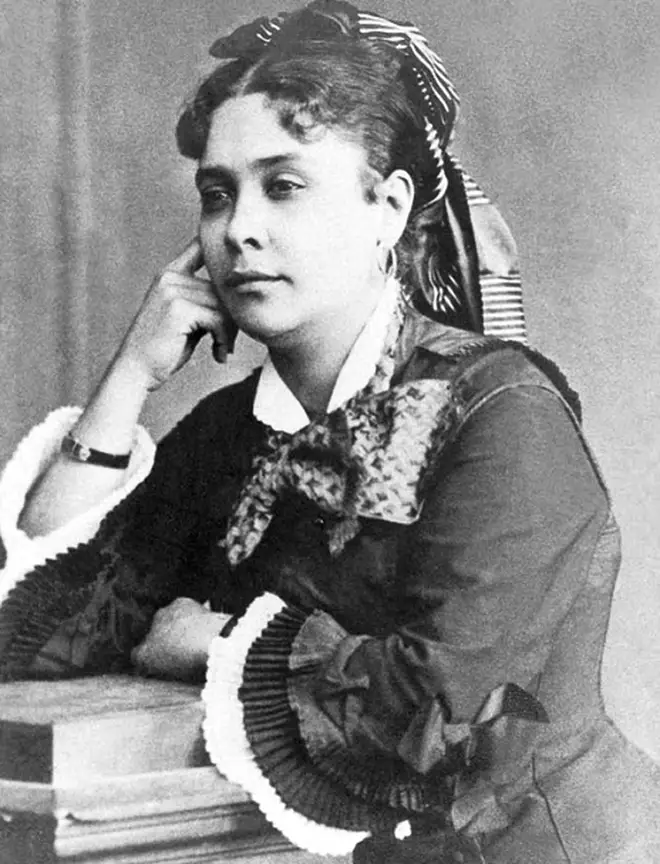On Air Now
Classic FM Breakfast with Aled Jones 6:30am - 9am
15 October 2020, 16:30 | Updated: 20 May 2021, 14:21

Meet Brazilian composer and conductor Chiquinha Gonzaga, a brilliant musical mind who campaigned for the abolition of slavery and was the first pianist of ‘choro’ music.
Francisca Edwiges Neves Gonzaga, or ‘Chiquinha’ as she became known, was born in 1847 in Rio de Janeiro, Brazil.
Her mother, Maria Rosa de Lima, was the daughter of a slave, while her father, José Neves Gonzaga Basilieu, was a white man from a noble family. In 19th century Brazil, mixed marriages were taboo, and his parents didn’t approve of the match.
Nevertheless, Basilieu and de Lima had their nuptials. And Basilieu made sure his favourite daughter, Chiquinha, received a fine education – which included classical piano studies.
Aged 11, she composed her first musical work, the song ‘Canção dos Pastores’.
Read more: José Maurício Nunes Garcia, the grandson of slaves who wrote the first Brazilian opera >

Music was young Chiquinha’s passion. But at age 16, her father arranged her marriage to a naval officer, who he hoped would introduce Chiquinha to high society in Rio.
Chiquinha’s husband disapproved of her music-making. And after having three children together, he asked Chiquinha to choose between him and music. Her reply? “Well, sir, my husband, I do not understand life without harmony.”
She left him, causing a scandal and her own father to disown her.
Read more: 9 Black composers who changed the course of classical music history >

Priscila Matos - Atraente (Chiquinha Gonzaga)
While she was shunned by her own family, Brazil’s artistic community welcomed Chiquinha with open arms.
She threw herself into Rio’s music scene, starting work on what would, over a lifetime, become a catalogue of more than 200 compositions, from waltzes and serenades to polkas and tangos. She also composed 77 plays and operettas which were widely popular for the way they played on elements from contemporary Brazilian culture.
Building on her early training, Chiquinha combined the sounds of the European classical tradition with African rhythms, which were considered vulgar at the time.
She became one of the first pianists of ‘choro’ – a characteristically Brazilian genre, often characterised by its jaunty, fast style.
Flautist Paula Robison explains: “The choro tradition in Brazil is very much like the blues in America. In Brazil, choro was the combination of the African tradition mixed with the Portuguese; the beautiful singing lines of the Portuguese melody combined with the life-giving heartbeat of Africa.”
Chiquinha was also the author of the first carnival march, ‘Ó Abre Alas’, which you can hear in the video below.
Read more: Scott Joplin, the Black American composer dubbed the ‘King of Ragtime’ >

Ô abre alas! - Chiquinha Gonzaga - 1899
Chiquinha is remembered today as the first woman conductor in Brazil – but it wasn’t just in her professional life that she made a mark.
She fought for the end of slavery in Brazil, joining the abolitionist movement that took place during her generation.
Today, she is considered an important figure in Brazilian culture. You can even find a sculpture in her honour in the Passeio Público of Rio, by the artist Honorius Peçanha.
And it seems no coincidence that the National Day of Brazilian Popular Music is celebrated on her birthday, 17 October…
Chiquinha died in Rio de Janeiro in 1936, aged 87.
Hear Chiquinha’s music played by Chi-chi Nwanoku OBE, the founder of the Chineke! Foundation, on Chi-chi’s Classical Champions, and during other programmes on Classic FM.